OncoMyx closes $50 million series B to advance a novel immuno-oncology platform that delivers multiple cancer-killing payloads
Biodesign Institute
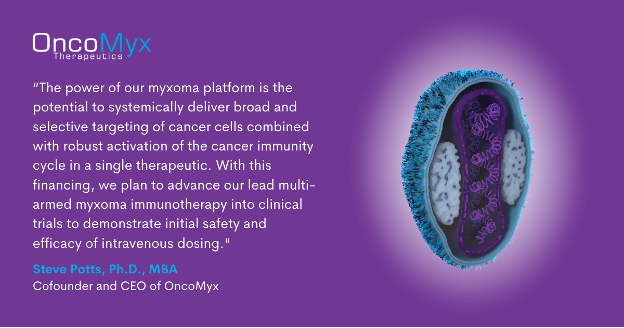
OncoMyx closes $50 million series B to advance a novel immuno-oncology platform that delivers multiple cancer-killing payloads
PHOENIX, December 8, 2021 – OncoMyx Therapeutics, a company implementing Grant McFadden's research into cancer-killing oncolytic viruses, has just received $50M Series B funding to advance its work. McFadden directs

Giving back to the community through innovative projects, research
Editor's note: This story is part of a series of profiles of notable fall 2021 graduates.When the COVID-19 pandemic began, Nikhil Dave knew he had to do something to help. As part of his work
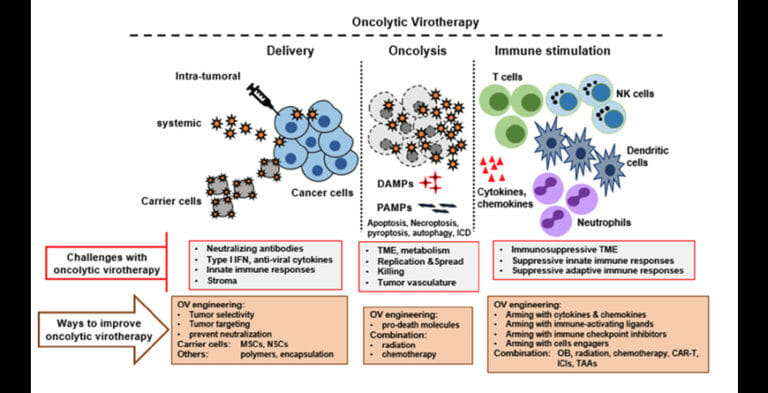
New review highlights cancer-crushing viruses
With the world still in the grip of a devastating pandemic, it’s hard to imagine viruses as something other than hostile enemies to be vanquished. But in a recent review article for the journal Cancers, Masmudur Rahman and Grant McFadden describe a class of viruses that act to combat rather than cause deadly disease. Such oncolytic viruses as they are known, have a remarkable ability to target and destroy cancer cells, while leaving healthy cells untouched. “The field of oncolytic

The innate immune responses during coronavirus infection
Henry (Yize) Li, PhD, Biodesign Center for Immunotherapy, Vaccines and Virotherapy Viroholics, will present as part of the Biodesign Center for Immunotherapy, Vaccines and Virotherapy Viroholics Seminar Series. Join via Zoom: https://asu.zoom.us/j/88240683626.

Virus-Host interactions for Oncolytic Virotherapy
Masmudur Rahman, PhD, Biodesign Center for Immunotherapy, Vaccines and Virotherapy Viroholics, will present as part of the Biodesign Center for Immunotherapy, Vaccines and Virotherapy Wednesday Seminar Series. Join via Zoom: https://asu.zoom.us/j/88567521236.

Reovirus replication factories: A tale of two machines
Terence S. Dermody, MD, University of Pittsburgh School of Medicine, will present as part of the Biodesign Center for Immunotherapy, Vaccines and Virotherapy Viroholics Seminar Series. Join via Zoom: https://asu.zoom.us/j/88240683626.
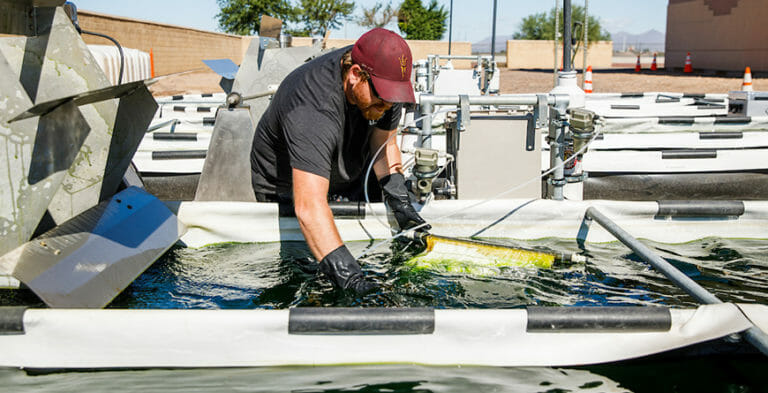
Zero waste water
ASU researchers see potential in wastewater When you think about wastewater — if you do at all — you probably think of reeking, worthless sewage that you flush down the

Krajmalnik-Brown named top-cited researcher
Analytics company Clarivate named Rosa Krajmalnik-Brown, director of the Biodesign Center for Health Through Microbiomes, as a 2021 Highly Cited Research across a variety of fields. This recognition is awarded to individuals in their field who demonstrate excellence through the production of highly cited papers that rank in the top 1% for their field and year in the Web of Science, a global citation database. Krajmalnik-Brown, also known as “Dr. Rosy,” has

Freeze Frame: Scientists use new electron microscope to explore the mysteries of life
In a winding corridor behind a loading dock in the basement of Arizona State University's Schwada building, a group of ASU scientists are meeting in a lab, deeply focused, exploring
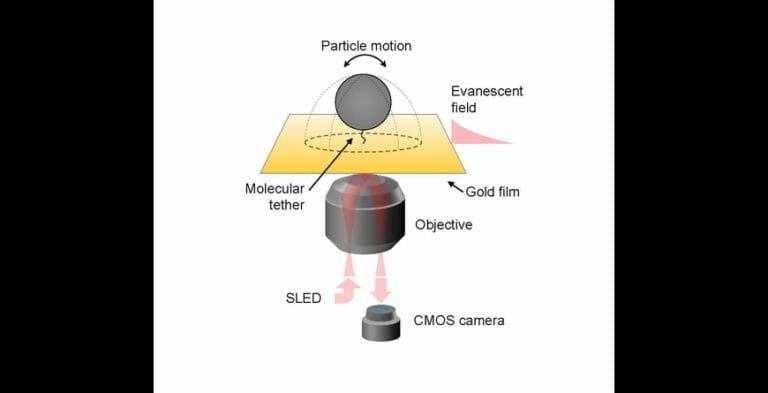
New microscopy method offers 3D tracking of 100 single molecules at once
Since its invention over 400 years ago, the microscope has continued to evolve, peering ever deeper into nature’s mysteries at the smallest scales. In new research, Prof. Shaopeng Wang, his postdoctoral

Anaplasma phagocytophilum – Translating Microbial Pathogenesis Discoveries to Potential Protective and Therapeutic Approaches
Jason Carlyon, PhD, Virginia Commonwealth University School of Medicine, will present as part of the Biodesign Center for Immunotherapy, Vaccines and Virotherapy Wednesday Seminar Series.
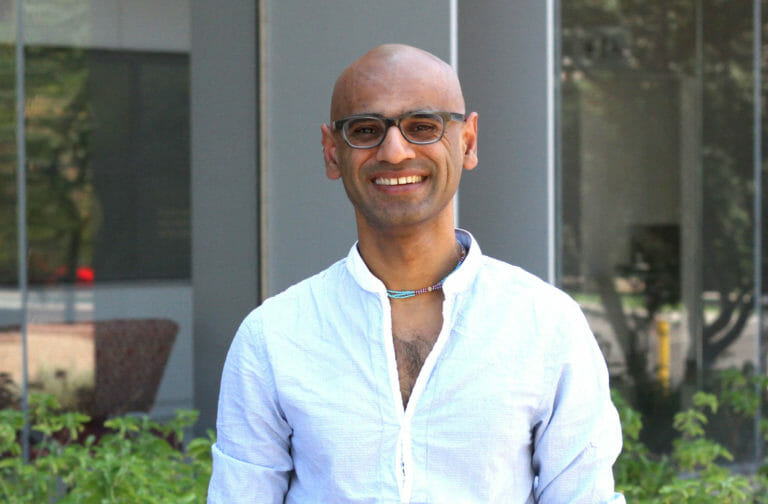
Machine learning IDs mammal species with the potential to spread SARS-CoV-2
Back and forth transmission of SARS-CoV-2 between people and other mammals increases the risk of new variants and threatens efforts to control COVID-19. A new study, published today in Proceedings of the Royal Society B, used a novel modelling approach to predict the zoonotic capacity of 5,400 mammal species, extending predictive capacity by an order of magnitude.